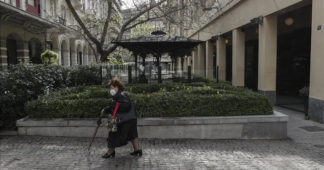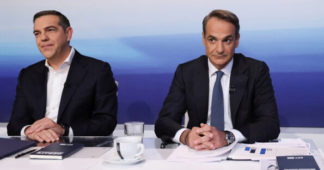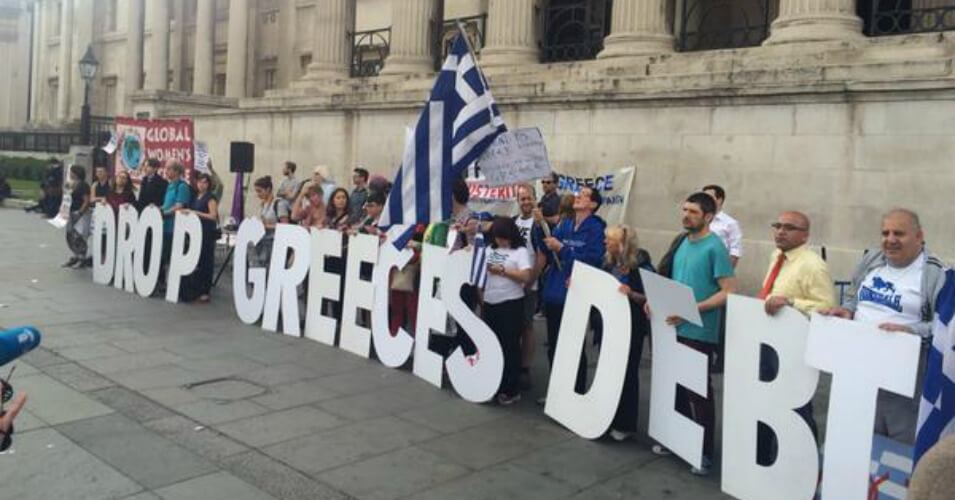Even mainstream western media like the Guardian have to admit that things are much worse than they seem in Greece, destroyed by the action of Germany, the EU and the IMF, in a way no other western country was destroyed after WWII.
Greece is booming again. This time, will it last?
By Paul Taylor
May 12, 2025
Cranes are finally whirling over a long-blighted stretch of wasteland on the Athens Riviera, just 6 miles from the Acropolis, which has been a symbol of Greece’s rise, fall and rise again over the past two decades. Yet it remains to be seen whether the country’s latest economic spring will prove more durable than past spikes in its historical cycle of boom and bust.
The Ellinikon construction site, soon to feature luxury residences, the tallest apartment building and largest shopping mall in the country, two hotels, a marina, a resort complex and sports, recreational and cultural facilities, is an ambivalent symbol of peak Greece.
To the government of Kyriakos Mitsotakis, darling of the European centre-right, the development is emblematic of the new dynamism of the Greek economy and the country’s attractiveness as an investment location. To its critics, Ellinikon is just another luxury real-estate project built by oligarchs for the super-rich and foreigners, on public land bought for a steal, while ordinary Greeks continue to see their living standards stagnate and public services decline.
The 6.2 sq km Ellinikon site was home to the capital’s airport from the 1930s until 2001, when the gleaming, EU-subsidised Eleftherios Venizelos international airport opened to the east of the city in time for the spectacular 2004 Athens Olympic Games.
That was the last time Greece was on top of the world. The country had just joined the euro single currency – by fiddling the books, it later transpired – and a modernising socialist prime minister, Costas Simitis, was hailed as the Tony Blair of the southern Balkans. Greek was chic (remember the hit film My Big Fat Greek Wedding?). Tourism was booming. Even the national football team had become improbable European champions.
Fast forward a decade and Greece was at rock bottom after defaulting on its debt and enduring three EU-IMF bailout programmes that shrank the economy by 26% and imposed draconian austerity. The debt crisis erupted when it was revealed in 2009 that the country had massively understated its budget deficit. Bond markets panicked and stopped lending to Athens, forcing it to appeal to the EU for loans that came with harsh conditions.
The ensuing descent caused mass unemployment, widespread impoverishment and a brain drain of some 10% of the population. It also blew up the country’s politics, long dominated by the rival patronage systems of the conservative New Democracy and the socialist Pasok parties.
An anti-austerity government, led by the radical-left Syriza party, was elected in 2015 and won a referendum to reject the bailout terms, only to bow to the creditors’ conditions weeks later when faced with the alternative of ejection from the eurozone.
The so-called troika of the IMF, European Commission and European Central Bank forced Athens to raise money by selling off state assets, including the port of Piraeus to the Chinese national shipping company Cosco and the disused Ellinikon airport-to-nowhere to the only bidder at the time, a consortium led by the billionaire Spiros Latsis, who has sprawling banking, shipping, real-estate and oil interests.
Continue reading at www.theguardian.com
We remind our readers that publication of articles on our site does not mean that we agree with what is written. Our policy is to publish anything which we consider of interest, so as to assist our readers in forming their opinions. Sometimes we even publish articles with which we totally disagree, since we believe it is important for our readers to be informed on as wide a spectrum of views as possible.











